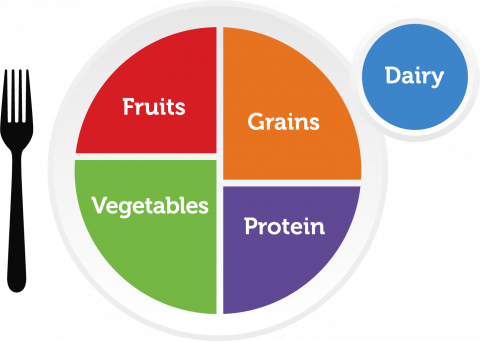
GOOD NUTRITION
Something every swimmer should know before learning about good nutrition is this—food does NOT make you swim fast. That’s right. Food does not make you swim fast. What DOES make you swim fast? TRAINING. Training makes you swim fast. Better yet, QUALITY TRAINING makes you swim FAST and an integral part of quality training is GOOD NUTRITION.
Believe it or not, you don’t get fast during practice. Practice is where you might see your times improving, but your adaptation to training (i.e., getting faster) actually occurs while your body is at rest. Workout is the stimulus that causes this to happen. Rest are where the gains actually happen.
Work works. Workouts are often challenging—they’re supposed to be. They’re designed to tell the body, "This is hard work for me… you better do something to enable me to do it again later.” And the body responds by becoming more efficient, both aerobically and anaerobically. During times of REST, the body WILL adapt—but only if you give it the proper fuels.
Eating well is an important part of your training, especially as you get older.
Nutrition Manifesto for Young Swimmers
- I will eat real food, most of the time.
- I will enjoy what I eat and pay attention to how my body feels during and after eating, which will help me stay in touch with my appetite.
- I will strike a healthy balance with the foods that fuel my body and the foods I eat purely for taste and enjoyment.
- I will be mindful of the quantities and types of foods I eat that don’t offer fuel for my exercising body.
- I will eat 3 meals each day.
- I will include all foods in my diet, as able, and avoid eating patterns that eliminate any food groups.
- I will plan my food intake throughout the day, aiming to eat a meal or snack every three to four hours.
- I won’t skip meals.
- I won’t overload on snack foods.
- I will try to eat a source of protein, fat or fiber with my snack to help my body feel satisfied afterward.
- I won’t rely on overly processed foods.
- I will prepare for my training sessions by eating a nutritious snack beforehand.
- I will recover from long training sessions with a recovery snack that includes protein and carbs.
- I will pay attention to my hydration status by drinking throughout the day, and checking my urine for adequate hydration.
- I will investigate the safety and efficacy of any supplement I am interested in using, and I will consult with my coach or parents before using one.
- I will get a good night’s sleep so my body can grow and recover from training.
Athlete Eating Guidelines
The Big Deal About A Swimmer's Nutrition: What To Know
USA Swimming: Nutrition & Recovery Page
USA Swimming: Become A Nutrition Expert
USA Swimming: The Art Of Recovery
USOPC: Fueling For Competition Fact Sheet
MyPlate Strategies
The benefits of healthy eating add up over time, bite by bite. Small changes matter. Start Simple with MyPlate.
- Make half your plate fruits and vegetables: focus on whole fruits.
- Make half your plate fruits and vegetables: vary your veggies.
- Make half your grains whole grains.
- Vary your protein routine.
- Move to low-fat or fat-free dairy milk or yogurt (or lactose-free dairy or fortified soy versions).
For more information about MyPlate, visit the What is MyPlate? page.





